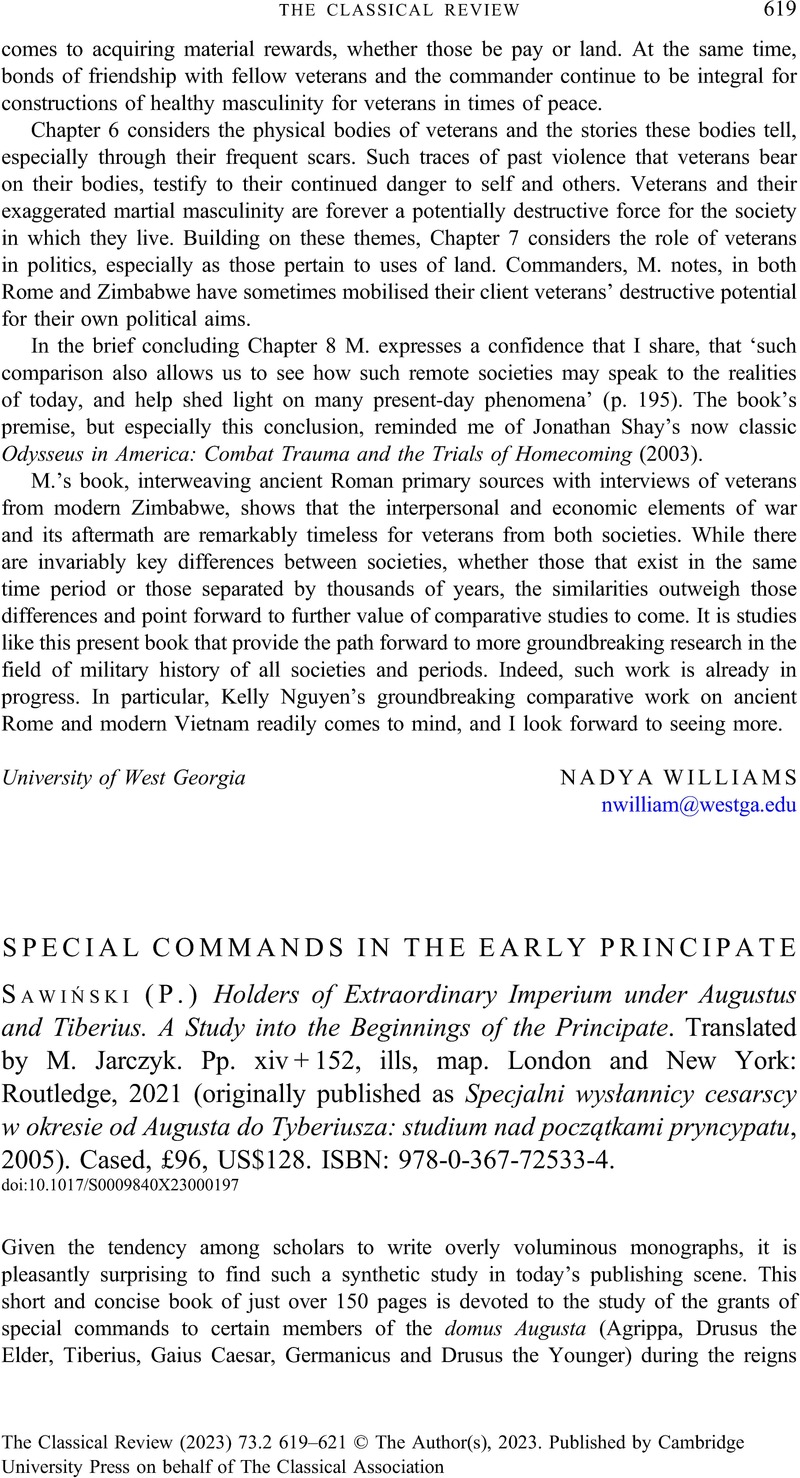No CrossRef data available.
Article contents
SPECIAL COMMANDS IN THE EARLY PRINCIPATE - (P.) Sawiński Holders of Extraordinary Imperium under Augustus and Tiberius. A Study into the Beginnings of the Principate. Translated by M. Jarczyk. Pp. xiv + 152, ills, map. London and New York: Routledge, 2021 (originally published as Specjalni wysłannicy cesarscy w okresie od Augusta do Tyberiusza: studium nad początkami pryncypatu, 2005). Cased, £96, US$128. ISBN: 978-0-367-72533-4.
Review products
(P.) Sawiński Holders of Extraordinary Imperium under Augustus and Tiberius. A Study into the Beginnings of the Principate. Translated by M. Jarczyk. Pp. xiv + 152, ills, map. London and New York: Routledge, 2021 (originally published as Specjalni wysłannicy cesarscy w okresie od Augusta do Tyberiusza: studium nad początkami pryncypatu, 2005). Cased, £96, US$128. ISBN: 978-0-367-72533-4.
Published online by Cambridge University Press: 02 May 2023
Abstract
An abstract is not available for this content so a preview has been provided. Please use the Get access link above for information on how to access this content.

- Type
- Reviews
- Information
- Copyright
- Copyright © The Author(s), 2023. Published by Cambridge University Press on behalf of The Classical Association



